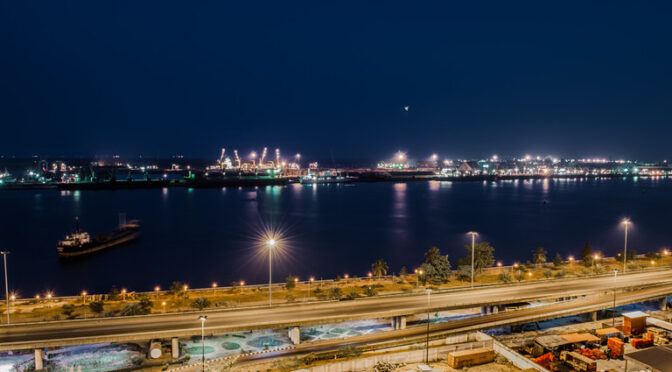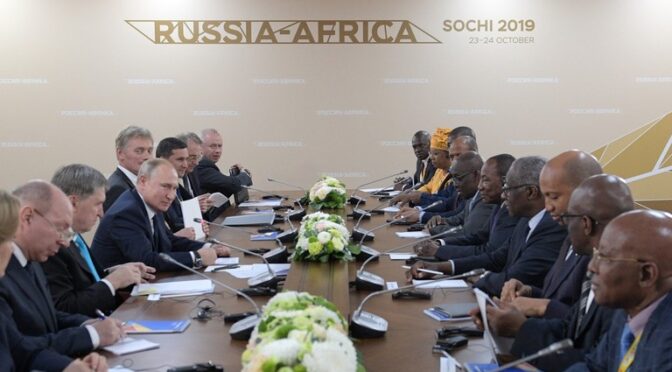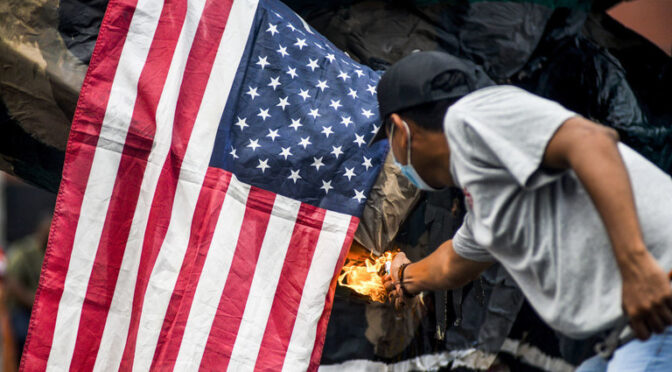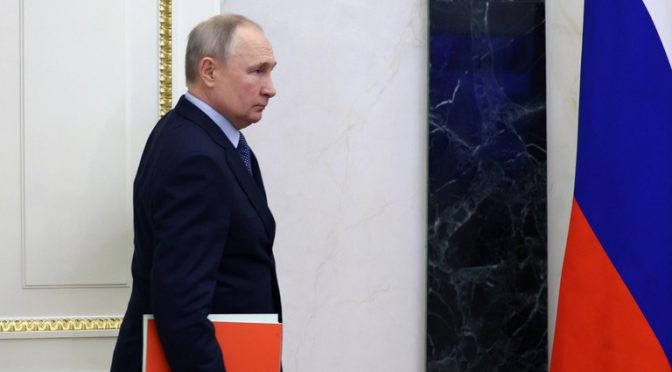Countries of the BRICS economic bloc are currently working on the launch of a financial system that would be independent of the dominance of third parties, according to the Russian Ambassador to China Igor Morgulov.
Continue reading BRICS Launching an Independent Financial SystemCategory Archives: Multipolar World
Is Eurasia about to get its own NATO?
The Shanghai Cooperation Organization could play an important role in a nascent security system that emphasizes total development.
Continue reading Is Eurasia about to get its own NATO?What Putin’s Meeting with Kim Jong-un Really Means
With the West-centered world order in decline, the strengthening of a new ‘power triangle’ in the East is a logical development.
Continue reading What Putin’s Meeting with Kim Jong-un Really MeansThe BRICS Weigh in on Palestine
The gravity around the newly-enlarged BRICS constellation is drawing in Arab, Muslim, and Global South adherents to the influential group’s message on international law, Palestine, and halting forever wars.
Continue reading The BRICS Weigh in on PalestineSupporting Genocide to Halt Multipolarity
The Hegemon is calculating for a World War to halt multipolarity. It supports Israel’s Gaza genocide as a necessary evil to win hard in West Asia, figuring who’s going to care once the war goes global?
Continue reading Supporting Genocide to Halt MultipolarityNiger to US: Pack Up Your Forever War
Dressed in green military fatigues and a blue garrison cap, Colonel Major Amadou Abdramane, a spokesperson for Niger’s ruling junta, took to local television last month to criticize the United States and sever the long-standing military partnership between the two countries.
Continue reading Niger to US: Pack Up Your Forever WarBRICS’ New Step to End US Dollar Dominance
The BRICS bloc of emerging economies is considering developing an independent payment system based on digital currencies and blockchain to reduce reliance on western financial systems.
Continue reading BRICS’ New Step to End US Dollar DominanceWill BRICS Launch A New World in 2024?
BRICS doubled its membership at the start of 2024, and faces huge tasks ahead: integrating its newest members, developing future admission criteria, deepening the institution’s groundings, and most importantly, launching the mechanisms for bypassing the US dollar in international finance.
Continue reading Will BRICS Launch A New World in 2024?Global South Youth Flocks to ‘Isolated’ Russia
By any metric, the World Youth Festival running in the Sirius federal territory (Sochi, southern Russia) on March 1-7 is a stunning achievement: a sort of Special Cultural Operation (SCO) encompassing the young Global South.
Continue reading Global South Youth Flocks to ‘Isolated’ RussiaThe Axis of Asymmetry Takes On The ‘Rules-Based Order’
World War III is here, playing out asymmetrically in military, financial, and institutional battlefields, and the fight is an existential one. The western Hegemon, in truth, is at war against international law, and only ‘kinetic military action’ can bring it to heel.
Continue reading The Axis of Asymmetry Takes On The ‘Rules-Based Order’A New Power Could Be Emerging in Asia
Indonesia, the world’s fourth-most-populous country, is treading carefully between China and the US as it gathers strength
Continue reading A New Power Could Be Emerging in AsiaRussia’s European Journey is Over
In terms of being a global centre of power, the Old World is finished. Moscow understands this, but our former partners remain in denial.
Continue reading Russia’s European Journey is OverRussia and the Arab World Defied Western Pressure in 2023
By putting their own national interests first, Moscow and its partners work towards a more balanced multipolar reality.
Continue reading Russia and the Arab World Defied Western Pressure in 2023A Convergence of Goals: BRICS and The Resistance Axis
The Gaza war has accelerated cooperation between Global South behemoths resisting western-backed conflict. Together, the Russian-led BRICS and Iran-led Axis of Resistance can shape a US-free West Asia.
Continue reading A Convergence of Goals: BRICS and The Resistance AxisTowards a New Military Alliance
There are currently four hot war/tension points in the world with high growth potential: Ukraine, Palestine, Taiwan and North Korea. In Ukraine, Russia is at the forefront and is winning.
Continue reading Towards a New Military AllianceUSA and Israel Should be Worried: The Muslim Middle East is Moving Its Own Way
Less than a month before Russia takes over the chairmanship of BRICS-11 where both UAE and Saudi Arabia will be full members, Russia makes a big move to bring cooperation with UAE and Saudi Arabia to an unprecedented level.
Continue reading USA and Israel Should be Worried: The Muslim Middle East is Moving Its Own WayHigh-Level Discussions in Moscow on Ending Israeli Violence in Gaza Using Capabilities
The Iranian deputy foreign minister for political affairs, Ali Bagheri Kani, emphasized the need for Iran and Russia to fully harness their capabilities to promptly halt Israel’s assaults on vulnerable Palestinian civilians in Gaza and to provide humanitarian assistance to the besieged region.
Continue reading High-Level Discussions in Moscow on Ending Israeli Violence in Gaza Using CapabilitiesKim-Putin Summit: March Toward the Promised Land, the Multipolar World?
To my surprise, the Kim-Putin Summit of September (13-17) 2023 was scarcely analysed by the Western media. This may be due to the poverty of revealed contents of the summit or the fear of mentioning those agreements which were too unfavourable to the West.
Continue reading Kim-Putin Summit: March Toward the Promised Land, the Multipolar World?Putin and the Magic Multipolar Mountain
There was a whiff of Thomas Mann’s ‘The Magic Mountain’ at the 20th Valdai annual meeting this week at a hotel over the gorgeous heights of the Krasnaya Polyana. north-west of the picturesque resort Sochi.
Continue reading Putin and the Magic Multipolar Mountain‘Reckless’ Western Politicians Have Lost the Sense of Self-Preservation
According to the top Russian diplomat, NATO’s actions have surged to levels unseen since the conclusion of the Cold War. He contends that the US-led coalition within NATO has engaged in exercises that simulate nuclear attacks against Russia.
Continue reading ‘Reckless’ Western Politicians Have Lost the Sense of Self-PreservationIn Vladivostok, the Russian Far East Rises
In Vladivostok this week, the ‘Russian Far East’ was on full, glorious display. Russia, China, India, and the Global South were all there to contribute to this trade, investment, infrastructure, transportation, and institutional renaissance.
Continue reading In Vladivostok, the Russian Far East RisesRussia, North Korea Stage ‘Strategic Coup’ Against Western Hegemony
It will take ages to unpack the silos of information inbuilt in the Eastern Economic Forum in Vladivostok last week, coupled with the – armored – train-keeps-a-rollin’ conducted by North Korean leader Kim Jong-Un straddling every nook and cranny of Primorsky Krai.
Continue reading Russia, North Korea Stage ‘Strategic Coup’ Against Western HegemonyPutin + Kim Summit: Military Cooperation, Space Exploration, Challenging US Sanctions Together
In a meeting held at the Vostochny Cosmodrome in Russia, Russian President Vladimir Putin and North Korea Chairman Kim Jong Un engaged in extensive discussions.
Continue reading Putin + Kim Summit: Military Cooperation, Space Exploration, Challenging US Sanctions TogetherNo Respite for France as A ‘New Africa’ Rises
Like dominos, African states are one by one falling outside the shackles of neocolonialism. Chad, Guinea, Mali, Burkina Faso, Niger, and now Gabon are saying ‘non’ to France’s longtime domination of African financial, political, economic, and security affairs.
Continue reading No Respite for France as A ‘New Africa’ RisesFrom Burkina Faso to Niger to Gabon, Western Hegemony Dying in Africa
Berlin Conference of 1884-1885 was undeniably one of the biggest evil summits in modern history. Greedy and racist European colonialists sat down in the German city and divided Africans as if they were sharing bread on a breakfast table.
Continue reading From Burkina Faso to Niger to Gabon, Western Hegemony Dying in AfricaEU Shaken Again: Gabon Coup Sparks Urgent Talks, “Coups Threatens Regional Stability”
EU defense ministers are set to deliberate on the circumstances in the Central African nation of Gabon, following an announcement by soldiers of the former French colony that they have taken control.
BRICS’ Bold Expansion: Economic Prospects and Political Tensions on a Global Stage
Experts noted that the expansion of BRICS could bring significant economic benefits to its member countries, despite potential differences among them regarding the group’s role in global politics.
Continue reading BRICS’ Bold Expansion: Economic Prospects and Political Tensions on a Global StageBRICS 11 Strategic Tour de Force: Death Knell for the Petrodollar Sends Shockwaves Through the Empire!
Chinese President Xi Jinping defined all the major decisions embedded in the 15th BRICS summit in South Africa as “historic”. That may be seen as an understatement.
Continue reading BRICS 11 Strategic Tour de Force: Death Knell for the Petrodollar Sends Shockwaves Through the Empire!Forging New Path: The Johannesburg BRICS Declaration
The Johannesburg BRICS declaration was adopted at the 15th summit of the bloc in South Africa on August 23.
Continue reading Forging New Path: The Johannesburg BRICS DeclarationGlobal South Gains Upper Hand: BRICS+ Exceeding the Financial Might of Western-led Groups
Lula disclosed that the expanded coalition from the Global South will considerably exceed the financial might of western-led groups by incorporating six new members.
Continue reading Global South Gains Upper Hand: BRICS+ Exceeding the Financial Might of Western-led GroupsBRICS Summit 2023: Explosive Talks on Ditching Dollar Dominance with New Global Currency!
The 15th annual BRICS summit commenced on August 22nd as official representatives from various nations gathered in Johannesburg, South Africa.
Continue reading BRICS Summit 2023: Explosive Talks on Ditching Dollar Dominance with New Global Currency!BRICS Unleashes Game-Changing Plan for a Fair and Multipolar World Order
The foreign minister of Russia has asserted that the global community is weary of the tactics of coercion and pressure employed by Western elites.
Continue reading BRICS Unleashes Game-Changing Plan for a Fair and Multipolar World OrderThe West’s Attempt to Create a Ukrainian Scenario in Niger is Faltering
African leaders are not suicidal, unlike their counterparts in Kiev, and are thus less willing to do NATO’s bidding.
Continue reading The West’s Attempt to Create a Ukrainian Scenario in Niger is FalteringNiger is Far from a Typical Coup
Rather than send troops in response to the coup, France and the U.S. seem to favor a “Rwanda” type solution applied in Mozambique earlier this year, writes Vijay Prashad. Only this time ECOWAS would apply force.
Continue reading Niger is Far from a Typical CoupGeopolitical Chessboard Shifts Against US Empire
The geopolitical chessboard is in perpetual shift – and never more than in our current incandescent juncture.
Continue reading Geopolitical Chessboard Shifts Against US EmpireRussia To Assist Nigeria in Revitalizing Its Steel Industry
The largest steel mill in the African nation was constructed through a collaboration with the Soviet Union. Over the years, Russia has remained a reliable ally for Nigeria, and the two countries have developed a strong government-to-government relationship.
Continue reading Russia To Assist Nigeria in Revitalizing Its Steel IndustryThe Russia-Global South Connection: Africa as Strategic Partner
Moscow now seems to enjoy all it takes to build a fruitful, Global Majority-centered strategic partnership.
Continue reading The Russia-Global South Connection: Africa as Strategic PartnerHere’s what Russia can offer Africa
Moscow has something extremely valuable to offer countries across the continent.
Continue reading Here’s what Russia can offer AfricaPutin: Joining Russia and Africa Efforts for Peace, Progress and a Successful Future
On July 27–28, St Petersburg will host the second Russia-Africa Summit and Russia-Africa Economic and Humanitarian Forum.
Continue reading Putin: Joining Russia and Africa Efforts for Peace, Progress and a Successful FutureFinance, Power, Integration: The SCO Welcomes A New ‘Global Globe’
Discussions at the recent SCO Summit in New Delhi now point to the inevitable: The merging of new multipolar organizations and their collective reorganization of global finance.
Continue reading Finance, Power, Integration: The SCO Welcomes A New ‘Global Globe’China’s Bold Move: Unveiling the Game-Changing Foreign Relations Law that Defies Hegemony
The legislation recently approved in Beijing aims to restore the principles of equality and fairness among all nations, bringing back a system governed by the rule of law.
Continue reading China’s Bold Move: Unveiling the Game-Changing Foreign Relations Law that Defies HegemonyWhy the US Sought Secret Talks with Iran
Although the specific details of US-initiated indirect talks with Iran are unknown, Tehran is already reaping billions of unfrozen dollars in rewards. In return, Iran may have promised to temporarily stop enrichment at 60%, a number it already had no plan to exceed.
Continue reading Why the US Sought Secret Talks with IranAmerican Elites Conceding The World is Rebelling Against the US
A former White House official has acknowledged the reality of growing resistance to the country’s imperialism
Continue reading American Elites Conceding The World is Rebelling Against the USRussia’s SPIEF in, Hegemonic West Out
Moscow seeks trade alliances with countries in Asia and the Global South at the St. Petersburg International Economic Forum.
Continue reading Russia’s SPIEF in, Hegemonic West OutRussia’s New Roadmap for Multipolar World
The St. Petersburg International Economic Forum is not only the premier platform for discussing everything that matters in business and geoeconomics concerning Russia and the wider Eurasia.
Continue reading Russia’s New Roadmap for Multipolar WorldHow the BRI train took the road to Shangri-La
In less than a decade, China’s BRI has fundamentally transformed global geopolitics. It is already far too late for the west to compete.
Continue reading How the BRI train took the road to Shangri-LaBold Gambits on the West Asian Chessboard
In the Great Power competition, everything is connected: Uncertain negotiations between Russia and NATO over Ukraine may be impacted by Turkiye’s post-election pivot and Syria’s return to the Arab League.
Continue reading Bold Gambits on the West Asian ChessboardMultipolarity is About a Fair Redistribution of Power, Which the West Refuses to Accept
An equitable world order is gaining momentum as tensions flare between the dominant and emerging world powers
Continue reading Multipolarity is About a Fair Redistribution of Power, Which the West Refuses to AcceptBridge of Peace and Prosperity Proposed From the Arab World to Syria
Syria is on the brink of recovery as Saudi Arabia plans to invite Syrian President Bashar al-Assad to the Arab League summit in Riyadh on May 19.
Continue reading Bridge of Peace and Prosperity Proposed From the Arab World to SyriaSaudi Arabia Makes its Eurasian Shift
Saudi Arabia’s recent reconciliations with Iran and Syria under Chinese-Russian guidance is perceived as a step toward reducing Riyadh’s dependence on the US, while also advancing Beijing and Moscow’s political and economic influence in West Asia.
Continue reading Saudi Arabia Makes its Eurasian ShiftThe Capital of the Multipolar World: A Moscow Diary
In Moscow you feel no crisis. No effects of sanctions. No unemployment. No homeless people in the streets. Minimal inflation.
Continue reading The Capital of the Multipolar World: A Moscow DiaryMoscow Calls for Strengthened Cooperation Between All Nations Facing Foreign Pressure
Moscow aims to defend the emerging multipolar world order against the vestiges of Western domination.
Continue reading Moscow Calls for Strengthened Cooperation Between All Nations Facing Foreign Pressure
















































